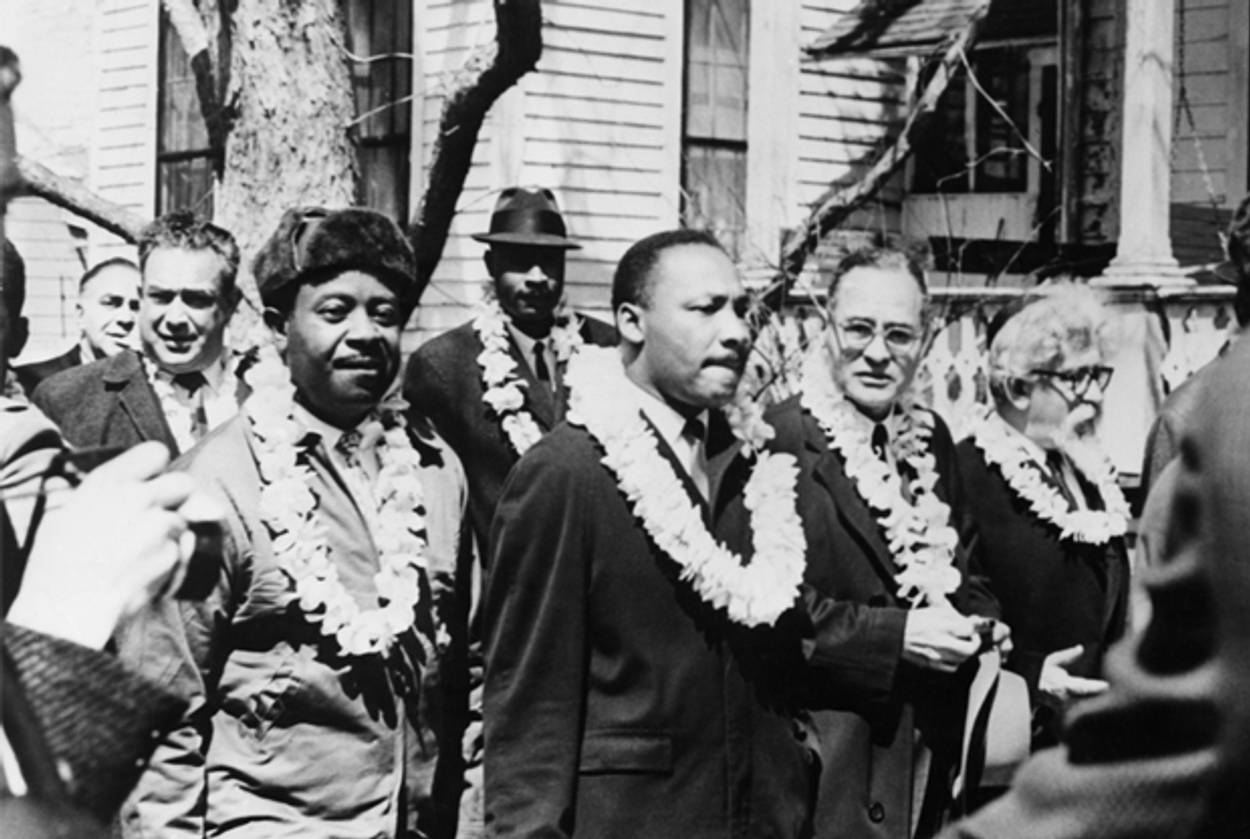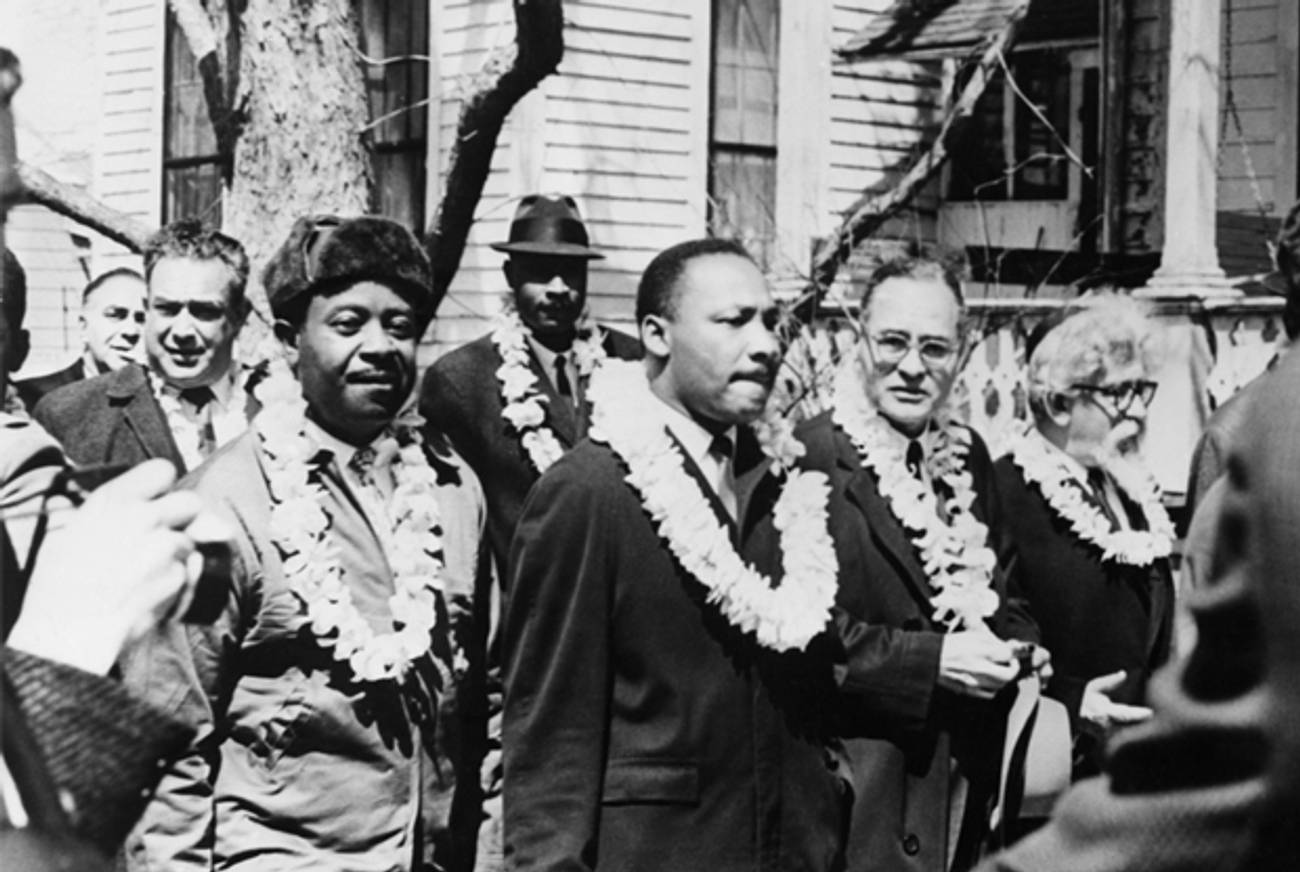The Rabbis of Selma
Abraham Heschel and others marched with Martin Luther King




My wife and I, as we had Christmas Eve to ourselves, went to see Selma. It’s terrific, as good as you’ve heard. And it was immensely satisfying to see figures who, unlike Martin Luther King, Jr., have not achieved great fame given real screen time.
I’m thinking particularly of John Doar, a true hero of the Justice Department; Bayard Rustin, the organizer of the March on Washington; and Amelia Boynton, who helped organize the Selma march. They all deserve to be enshrined, and it’s disgraceful their names are not more widely known.
The entire movie is powerful, but it’s particularly so when clergy across the country drop what they’re doing to join King, in the face of almost certain violence. The rabbis are not on screen much–and that’s fine; it’s not their story–but it’s worth taking the opportunity to briefly revisit their role in Selma.
The most famous of them, surely, is Abraham Joshua Heschel, an enthusiastic supporter of the civil rights movement (as well as a passionate opponent of the war in Vietnam). “You cannot worship God,” he said, “and then look at a human being, created by God in God’s own image, as if he or she were an animal.”
There’s a famous photo of him in which he is side by side with King, Ralph Abernathy, and Ralph Bunche. He looks out of place, with his long, white beard and black yarmulke.
The year after Selma, he noted, “[I]t was easier for the children of Israel to cross the Red Sea than for a Negro to cross certain university campuses.”
Also at Selma were, among others, David Teitelbaum, who traveled south from North California, with four other rabbis. “I was living out what Judaism has been teaching all along,” he said not long ago, “that you have to help the oppressed and underprivileged, and not stand idly by the blood of your neighbor.”
It’s intensely shameful to admit now, but rabbis did not always have the support of their congregants back home:
Jews who took part in these efforts took considerable push-back from fellow Jews who felt that Jewish activism was better directed at issues of Jewish, not general, concern.
Most of the rabbis who marched with King, or joined the Freedom Riders, were Reform, said [Al] Vorspan, now senior vice president emeritus of the Union for Reform Judaism, formerly known as the Union of American Hebrew Congregations.
UAHC came out “strongly and unequivocally” in favor of civil rights activism, he said, but the rabbis who went South risked more than physical danger.
“Many of their congregations were on the verge of firing them for it,” Vorspan said. “I personally went to several congregations threatening to fire their rabbis and told them it would be a ‘chilul Hashem,’ ” a desecration of God’s name.
“The ultimate measure of a man is not where he stands in moments of comfort and convenience,” wrote King in Strength to Love, “but where he stands at times of challenge and controversy.”
Anyway, here’s an excellent JTA story from several years ago, which is worth reading in full.
Elon Green is a writer in New York.